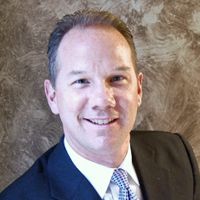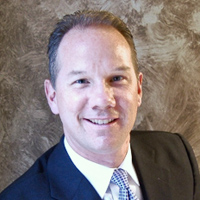Can You Save Too Much in Your 401(k)?
Over-investing in your 401(k) can lead to a taxing retirement. It's one of the biggest mistakes investors tend to make, and it’s avoidable.


Profit and prosper with the best of Kiplinger's advice on investing, taxes, retirement, personal finance and much more. Delivered daily. Enter your email in the box and click Sign Me Up.
You are now subscribed
Your newsletter sign-up was successful
Want to add more newsletters?

Delivered daily
Kiplinger Today
Profit and prosper with the best of Kiplinger's advice on investing, taxes, retirement, personal finance and much more delivered daily. Smart money moves start here.

Sent five days a week
Kiplinger A Step Ahead
Get practical help to make better financial decisions in your everyday life, from spending to savings on top deals.

Delivered daily
Kiplinger Closing Bell
Get today's biggest financial and investing headlines delivered to your inbox every day the U.S. stock market is open.

Sent twice a week
Kiplinger Adviser Intel
Financial pros across the country share best practices and fresh tactics to preserve and grow your wealth.

Delivered weekly
Kiplinger Tax Tips
Trim your federal and state tax bills with practical tax-planning and tax-cutting strategies.

Sent twice a week
Kiplinger Retirement Tips
Your twice-a-week guide to planning and enjoying a financially secure and richly rewarding retirement

Sent bimonthly.
Kiplinger Adviser Angle
Insights for advisers, wealth managers and other financial professionals.

Sent twice a week
Kiplinger Investing Weekly
Your twice-a-week roundup of promising stocks, funds, companies and industries you should consider, ones you should avoid, and why.

Sent weekly for six weeks
Kiplinger Invest for Retirement
Your step-by-step six-part series on how to invest for retirement, from devising a successful strategy to exactly which investments to choose.
When people meet a doctor at a party, they ask about a pain or a rash.
When they meet a financial professional, they’ll try to get a stock tip.
I won’t go there. But if the person seems genuinely interested, I’ll ask, “Is your portfolio diversified?”
From just $107.88 $24.99 for Kiplinger Personal Finance
Become a smarter, better informed investor. Subscribe from just $107.88 $24.99, plus get up to 4 Special Issues

Sign up for Kiplinger’s Free Newsletters
Profit and prosper with the best of expert advice on investing, taxes, retirement, personal finance and more - straight to your e-mail.
Profit and prosper with the best of expert advice - straight to your e-mail.
Usually the answer is yes; they’ll say they have stocks, bonds and mutual funds.
And I’ll say, “I mean are you tax diversified?” Most people haven’t put much thought into that, because they haven’t thought about what the taxes will be when they start to withdraw their retirement funds. So we talk about tax-deferred accounts (such as 401(k), traditional IRA or 403(b) accounts); taxable (brokerage-type) accounts; tax-free accounts (Roth 401(k) or Roth IRA); and other after-tax investments.
People tend to stick with the conversation when I tell them that one of the biggest mistakes I see investors make is overfunding their tax-deferred retirement accounts.
A Pervasive Problem
A large percentage of the people I meet with – probably 80% to 90% – have almost all of their money in a 401(k), traditional IRA or some type of qualified retirement account. Why? Because it’s easy, and that’s what they’ve always read or been told to do.
Any article about retirement over the last 20 to 30 years wants savers to believe a 401(k), with its before-tax automatic payroll withdrawals, is the best thing going, because it will help set them up for retirement. And it’s managed to suck a lot of individuals in on that premise. Most of the stories are only discussing the tax savings today and tax-deferred growth. But they aren’t discussing the exit strategy from these plans.
Unfortunately, what consumers don’t realize is how that money is going to be taxed when they add in the rest of their retirement income – Social Security and a pension, if they have one. They may think their tax brackets will be lower in retirement because their incomes will be lower then. The reality is that most people don’t want to see their incomes dramatically drop when they retire.
Also, many will not have the itemized deductions that helped them in the past to reduce their tax bills. Further, Uncle Sam wants his money, and he knows how to get it. Retirement accounts have what’s known as the 70½ rule, where there is a required minimum distribution (RMD) for all accounts. It is a specified percentage that has to be taken out, whether the funds are needed or not. Also, this percentage increases as the person gets older, because it’s based on life expectancy.
The Result, in Dollars and Cents
That means I see things like the client who is paying $268 a month this year for her Medicare Part B premiums, which is double the standard premium of $134 a month. Because her modified adjusted gross income (which includes all taxable income plus one-half of her Social Security income) is above $107,000, she must pay a “high-income surcharge.” That’s another $1,600 a year that, in my opinion, is just another tax.
More often, I hear from people who decide to take money out of a retirement account to pay for some end-of-the-year splurge – maybe a new car or a Christmas cruise for the family. What’s the harm, they tell themselves. We’re over 59½, so there’s no extra penalty, right?
Except they’re already taking regular monthly income distributions that are taxable, plus this lump-sum distribution. And they’re getting Social Security payments – of which up to 85% could also be taxable – and possibly a pension or additional income. Many times that results in additional taxes due, because when you add up ALL of the taxable income for the year, they haven’t paid enough taxes on ALL of their income. If that’s the only or main asset you have for income, big purchases, vacations, home repair, etc., every dollar of your distributions will be subject to ordinary income taxation.
What You Can Do
What can you do to lessen the blow?
There is no one-size-fits-all strategy, but one thing you might consider is what I refer to as filling the top of your bracket.
Let’s say you’re married and you’re in the 25% tax bracket with an adjusted gross income of $130,000. But that bracket actually goes up to $153,100. Would it make sense to convert $20,000 from an IRA/401(k)/403(b), etc. to a Roth IRA now, pay the tax now, and then get that deferred growth and have it tax-fee when you decide to withdraw it? Maybe not all $20,000, but it’s something to look at each year in the fourth quarter.
If you’re still working, you should only be funding your 401(k) up to your company match, and then, if your company offers a true Roth 401(k), divert the rest of the money you’re saving into that account. If you qualify for a Roth, it’s a great thing. Or just pay tax on the money and put it into a regular investment account, so you can take advantage of long-term capital gains.
This is why it pays, literally, to have a financial professional who takes a holistic approach to your portfolio. Someone who looks only at where your money is invested isn’t going to give you the whole picture. You need a professional who also will take care of your hard-earned savings with a sound tax strategy.
Kim Franke-Folstad contributed to this article.
Matt Hausman is the founder and president of Old Security Trust Corp. and Old Security Group, a Registered Investment Advisory Firm. Matt is an Investment Adviser Representative with Old Security Group and a licensed insurance professional.
Investment Advisory Services are offered through Old Security Group, a Registered Investment Adviser.
Profit and prosper with the best of Kiplinger's advice on investing, taxes, retirement, personal finance and much more. Delivered daily. Enter your email in the box and click Sign Me Up.

Matt Hausman is the founder and president of Old Security Trust Corp. and Old Security Group, a Registered Investment Advisory Firm. He focuses on helping clients recognize when they are unknowingly and unnecessarily transferring away their wealth, and believes in helping empower consumers through effective information on financial strategies. Matt has passed the Series 65 exam and holds life, health and title licenses in multiple states.
-
 5 Vince Lombardi Quotes Retirees Should Live By
5 Vince Lombardi Quotes Retirees Should Live ByThe iconic football coach's philosophy can help retirees win at the game of life.
-
 The $200,000 Olympic 'Pension' is a Retirement Game-Changer for Team USA
The $200,000 Olympic 'Pension' is a Retirement Game-Changer for Team USAThe donation by financier Ross Stevens is meant to be a "retirement program" for Team USA Olympic and Paralympic athletes.
-
 10 Cheapest Places to Live in Colorado
10 Cheapest Places to Live in ColoradoProperty Tax Looking for a cozy cabin near the slopes? These Colorado counties combine reasonable house prices with the state's lowest property tax bills.
-
 Don't Bury Your Kids in Taxes: How to Position Your Investments to Help Create More Wealth for Them
Don't Bury Your Kids in Taxes: How to Position Your Investments to Help Create More Wealth for ThemTo minimize your heirs' tax burden, focus on aligning your investment account types and assets with your estate plan, and pay attention to the impact of RMDs.
-
 Are You 'Too Old' to Benefit From an Annuity?
Are You 'Too Old' to Benefit From an Annuity?Probably not, even if you're in your 70s or 80s, but it depends on your circumstances and the kind of annuity you're considering.
-
 In Your 50s and Seeing Retirement in the Distance? What You Do Now Can Make a Significant Impact
In Your 50s and Seeing Retirement in the Distance? What You Do Now Can Make a Significant ImpactThis is the perfect time to assess whether your retirement planning is on track and determine what steps you need to take if it's not.
-
 Your Retirement Isn't Set in Stone, But It Can Be a Work of Art
Your Retirement Isn't Set in Stone, But It Can Be a Work of ArtSetting and forgetting your retirement plan will make it hard to cope with life's challenges. Instead, consider redrawing and refining your plan as you go.
-
 The Bear Market Protocol: 3 Strategies to Consider in a Down Market
The Bear Market Protocol: 3 Strategies to Consider in a Down MarketThe Bear Market Protocol: 3 Strategies for a Down Market From buying the dip to strategic Roth conversions, there are several ways to use a bear market to your advantage — once you get over the fear factor.
-
 For the 2% Club, the Guardrails Approach and the 4% Rule Do Not Work: Here's What Works Instead
For the 2% Club, the Guardrails Approach and the 4% Rule Do Not Work: Here's What Works InsteadFor retirees with a pension, traditional withdrawal rules could be too restrictive. You need a tailored income plan that is much more flexible and realistic.
-
 Retiring Next Year? Now Is the Time to Start Designing What Your Retirement Will Look Like
Retiring Next Year? Now Is the Time to Start Designing What Your Retirement Will Look LikeThis is when you should be shifting your focus from growing your portfolio to designing an income and tax strategy that aligns your resources with your purpose.
-
 I'm a Financial Planner: This Layered Approach for Your Retirement Money Can Help Lower Your Stress
I'm a Financial Planner: This Layered Approach for Your Retirement Money Can Help Lower Your StressTo be confident about retirement, consider building a safety net by dividing assets into distinct layers and establishing a regular review process. Here's how.